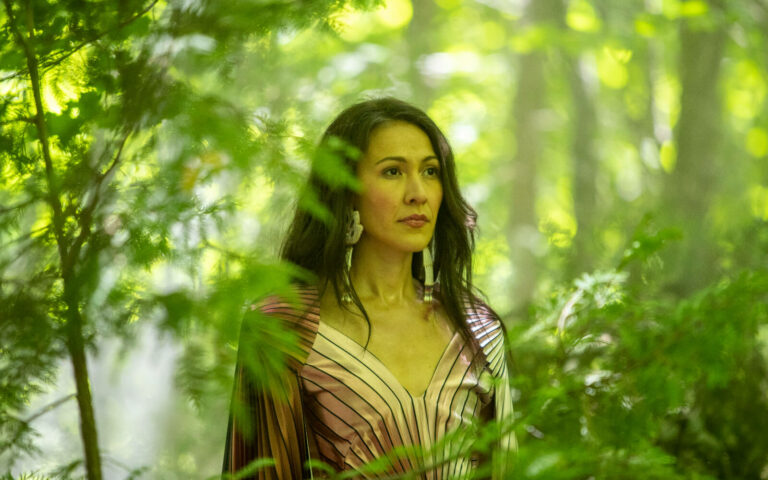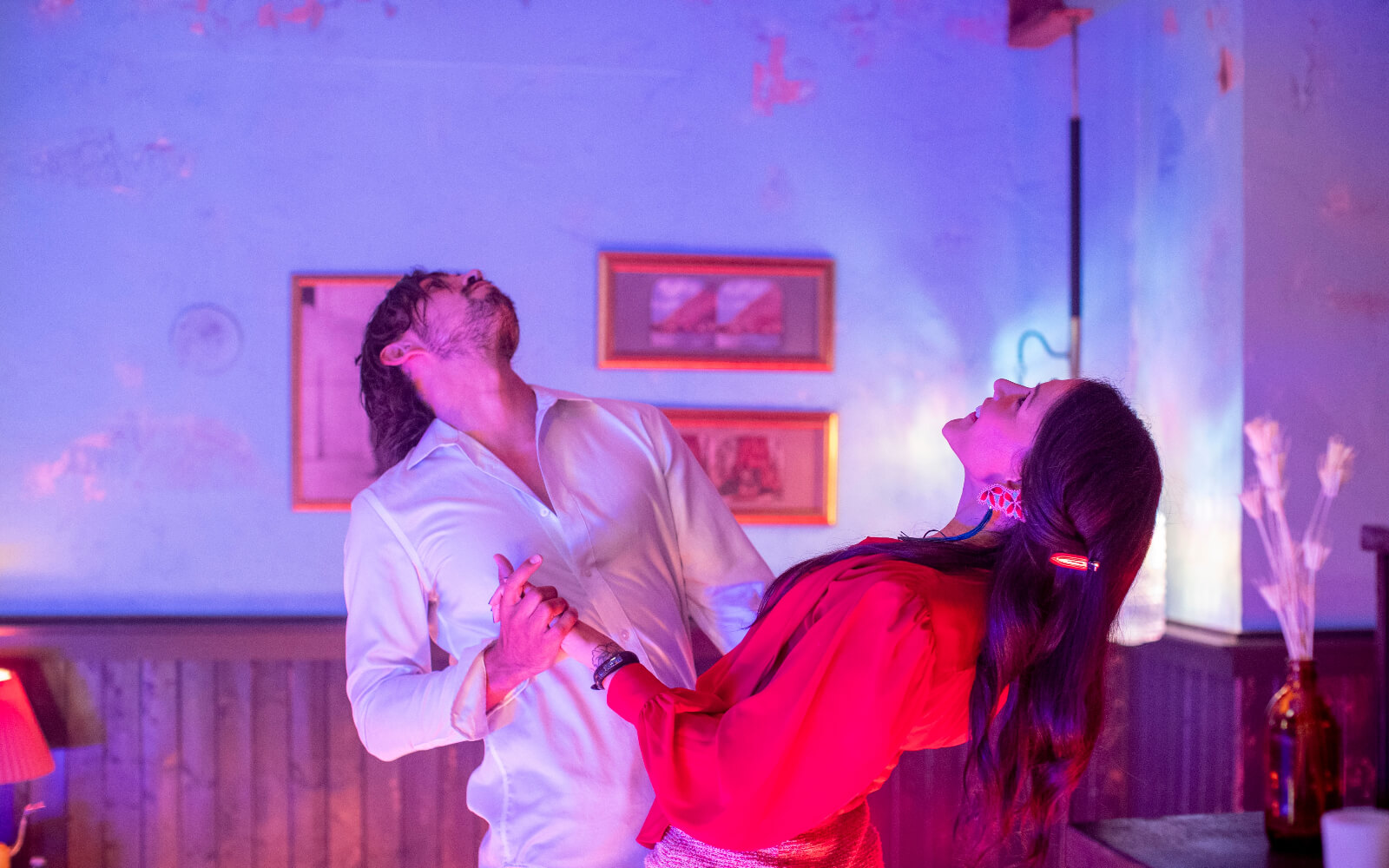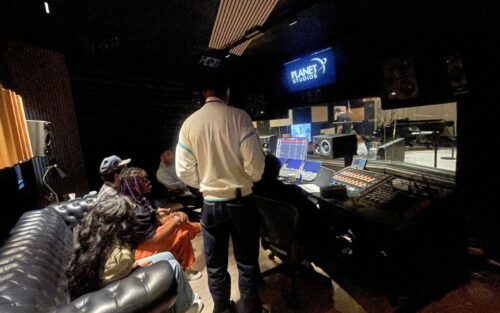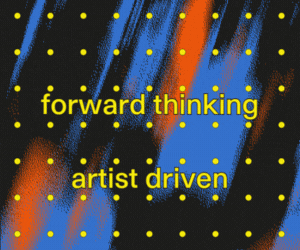
Elle-Máijá Tailfeathers' Radical Simplicity
The actor, director, and producer celebrates a milestone in Indigenous representation with new film Stellar while charting the work ahead.
by Maggie McPhee
- Published on
Elle-Máijá Tailfeathers has worked in film for twenty years. Over the course of her career, she’s witnessed and contributed to every modern milestone in Indigenous representation. The Blackfoot and Sámi multihyphenate has helmed award-winning documentaries and fiction films. As an actor, she’s led the late Jeff Barnaby’s horrorscapes, Danis Goulet’s dystopian science fiction, and, most recently, Darlene Naponse’s magical realism.
Naponse’s latest offering, Stellar, weaves an intimate story set in an expansive universe. Two strangers, “She” (Tailfeathers) and “He” (Braeden Clarke), connect over the course of a night at a dive bar. Outside, the world collapses in impossible ways — at once fire, at once floods. Inside, She and He draw nearer, indifferent to the chaos at their doorstep. By evening’s end, the two emerge into a new and old world: the land.
Tailfeathers calls the film healing and cathartic. “As Indigenous people in this country, we face so much systemic and structural violence on a daily basis, and then we face overt and explicit forms of racism. It can be so heavy every day to navigate all of that. There’s something so liberating and beautiful about being able to go to a movie theatre and watch two Indigenous people fall in love,” she explains. “It’s simple but radical at the same time.”

Stellar overflows with Indigenous talent. Anishinaabe artist Rebecca Belmore illuminates the bar with cosmological projections. The jukebox plays a stream of Indigenous musicians, including Alanis Obomsawin and Oscar winner Buffy Sainte-Marie.
Naponse crafts something more akin to a multisensory experience than a story, notes Tailfeathers. “It’s almost like you have an opportunity to see nature and the land and all of creation in a very different way,” she says. “So it’s not just this story about two Anishinaabe people falling in love in a bar, it’s about this entire universe that Darlene builds and it’s so special to witness it on the big screen.”
Stellar’s slow rhythms and rich silences immerse audiences into an oneiric spacetime continuum. “I love this world that you can create where there’s no real rules and the idea that as Indigenous people we exist in that. I’ve always felt that way, that we live in these dimensions, and everything becomes cyclic,” Naponse told Letterboxd, who selected Stellar as one of their 2022 festival faves.
The film instantiates a landmark moment in the history of Indigenous filmmaking: a love story unburdened by a trauma-based perspective, disconnected from the settler-colonial gaze. “There’s a lot of sorrow and difficult stories which are a part of our reality, but there’s also so much more,” says Tailfeathers. “I felt like this script was written specifically for an Indigenous audience, which really excited me.”
Tailfeathers attributes these tidal changes to Indigenous communities’ advocacy. On the one hand, there are their tireless demands for filmmaking resources, and on the other, their political activism.
“Now that we are getting somewhat equitable access, or even just a little bit more opportunity, we’re seeing this wide range of really exciting new stories coming from Indigenous filmmakers across the country,” she says.
Still, she laments ongoing gaps in the industry, especially behind the scenes. “We need more Indigenous technicians working as cinematographers and sound people, wardrobe, makeup, all of that,” she argues. “And it’s not like there’s a lack of talent, there’s just a lack of opportunity and a lack of equity. And that inequity is just reflective of Canada as a whole and all of the issues that we’re facing in this country.”
She points to her recent experience co-directing the 2023 Crave mini-series Little Bird. The Canadian drama, which has been widely adored, represents one of the first times Indigenous talent received adequate funding to make a premium show. “It just goes to show that when you give underrepresented voices equitable access to resources, we’re capable of doing remarkable work,” she says.
“We’re witnessing something really special,” she says. “But this is just the beginning.”
Stellar is out now in Toronto, Vancouver, Victoria, Winnipeg and Saskatoon, debuting one week before the National Day for Truth and Reconciliation.
By Glenn Alderson
A deep-listening session reveals how Apple Music’s sonic innovation reshapes the way we hear.
By Cam Delisle
Dominic Weintraub and Hugo Williams take audiences on a treadmill-fueled ride through the chaos and hope of modern life.
















